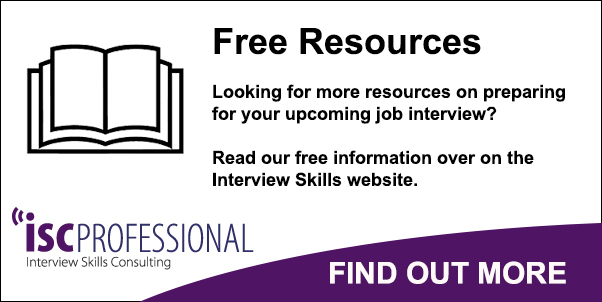Interview Techniques to Leave a Lasting Impression with your Interviewer
The old saying goes that first impressions count, but when it comes to job interviews what candidates also want is to make an impression that lasts. With buoyant UK job vacancy statistics, more and more people are seeking to enter the workforce. In this context it is essential to stand out from the crowd.
Here we look at effective interview skills and techniques for creating an impression which extends beyond the interview room.

Prepare painstakingly
A knowledgeable, well-informed and confident candidate will always catch the eye of an employer. The key to becoming this candidate is comprehensive research and interview preparation. Create a preparation plan which covers all aspects of your performance- from how you enter the room to developing strong examples of your previous experience. Conduct a mental walk through of the interview and think about every potential issue from confidence levels to communication skills. Polish any aspects of your performance which you think may fall short getting expert help and opinion where necessary.
Set up a strong start
The first few minutes of an interview can often set the tone for the rest of the encounter. Get your interview experience off to a strong start by confidently entering the room. Wear clothing which matches the style of the company, smile and shake hands with the panel. Remember to use positive body language sitting upright and leaning forward when answering questions. Deliver an introduction which sets out your stall and gives an early insight into why you, above all others, are right for this job.
Showcase your skills
Employers want a candidate with credibility so it is best to avoid stock phrases such as, “I’m a fast learner,” and,” I’m a hard worker,” -unless you can back up these claims with supporting evidence. Showcase your many talents by providing solid examples of when you quickly got to grips with a difficult task or when you went ‘above and beyond’ to get the job done. Develop carefully constructed answers which describe how you have previously dealt with situations, linking what you have done with the criteria and competencies required for this job.
Work around your weaknesses
Every candidate has their own Achilles heel whether that is limited work experience or time management issues. Never try to deny your weaknesses- the recruiter knows they are interviewing a human being. The trick is to demonstrate real self-awareness -show you know your weaknesses and have addressed them. If, for example, attention to detail can be a problem for you, explain how you build in additional time when completing a project to check things over and make adjustments if necessary. Outline how you have overcome limited work experience by proactively seeking out relevant volunteering opportunities. This approach shows you have taken time to identify your potential flaws and deal with them – not every candidate is realistic or honest enough to do that.
Ask a first-class question
Candidates often struggle to come up with an impressive end of interview question. Resorting to a generic option such as, ‘when will I hear if I’ve got the job?’ lacks imagination. This is an opportunity to ask a really well informed question which further demonstrates your knowledge of the company and their industry- so don’t pass it up. From your research you will be aware of specific issues facing the organisation. Quote relevant media articles and ask them how the development will impact the company. Obviously you should pick something which gives the panel the chance to paint the company in a positive light.
Find out more on how to succeed in situational interviews on the ISC Professional site.

